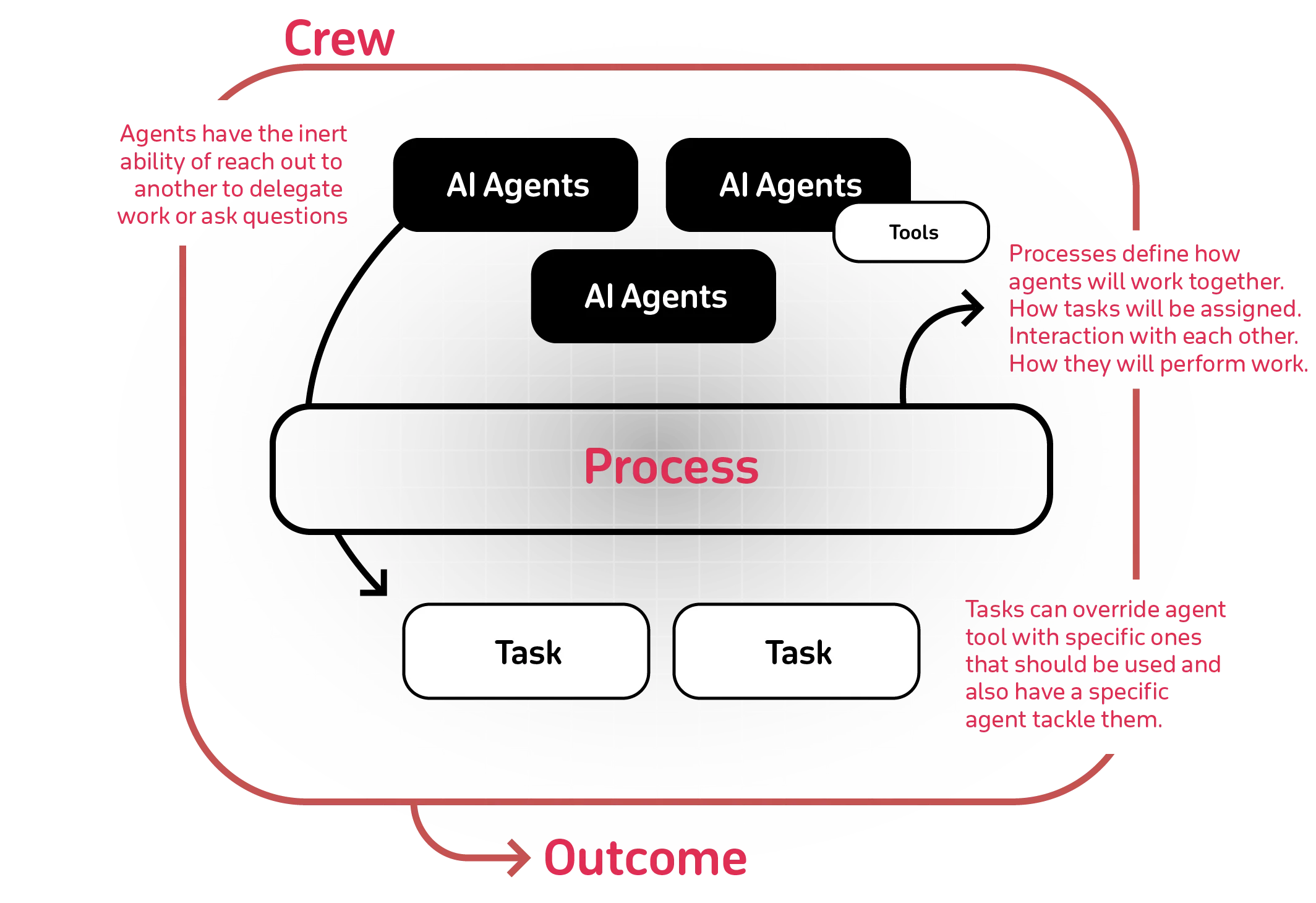Harnessing the power of AI agents for writing is a transformative approach to streamlining the creative process. Multi-Agent Systems (MAS) make it possible to delegate specific tasks to autonomous and specialized agents, allowing authors to focus on the creative aspects of writing. By using MAS, the process of planning, drafting, editing, fact-checking, and publishing becomes more efficient and reliable.
Understanding AI Agents in Writing
AI agents are autonomous systems that perform dedicated tasks within a larger framework. In the context of writing, these agents collaborate within a Multi-Agent System to tackle different stages of the writing process. Each agent has its own specialized role, contributing independently to achieve the shared goal of producing a polished manuscript. This structured approach ensures that the complexities of book writing are handled efficiently.
Advantages of Using AI Agents for Writing
The integration of AI agents into the book-writing process offers unparalleled benefits. AI agents work on multiple tasks simultaneously, which significantly reduces the time required to complete a project. For instance, while one agent focuses on drafting a chapter, another can refine earlier sections for grammar and clarity. Additionally, each agent specializes in a specific role, ensuring that every part of the process, from content creation to fact-checking, is handled by a virtual expert. This specialization enhances the quality of the manuscript while minimizing errors. The scalability of MAS means it can adapt to any project, from short articles to multi-volume novels, with ease.
Implementing AI Agents for Writing
To use AI agents effectively in writing, the process begins by breaking the workflow into distinct stages. The book-writing process typically involves planning, writing, editing, fact-checking, and publishing. Each stage is assigned to a specific agent that ensures the task is completed efficiently. For example, the Planning Agent lays the foundation by developing themes, character profiles, and a structured outline. This is followed by the Writing Agent, who transforms the outline into engaging chapters. Next, the Editing Agent refines the manuscript for coherence and style. The Fact-Checking Agent then ensures the accuracy of the content, while the Publishing Agent prepares the manuscript for distribution.
By clearly defining these stages and assigning specialized agents to each, MAS ensures that no aspect of the writing process is overlooked. This structured workflow not only saves time but also guarantees a high-quality final product.

How to Use CrewAI for Book Writing
CrewAI is a robust framework for implementing Multi-Agent Systems. It simplifies the process of setting up and managing AI agents for book writing. Below is an example of how CrewAI can be used to automate the writing process:
!pip install crewai
import os
from crewai import Agent, Task, Crew, Process
# Set up API key
os.environ["OPENAI_API_KEY"] = "Your-API-Key"
# Define agents
planning_agent = Agent(
role="Planning Agent",
goal="Create the book outline and character profiles.",
backstory="An expert in structuring books and developing engaging plots.",
verbose=True
)
writing_agent = Agent(
role="Writing Agent",
goal="Draft chapters based on the provided outline.",
backstory="A creative writer skilled at bringing stories to life.",
verbose=True
)
editing_agent = Agent(
role="Editing Agent",
goal="Edit drafts for grammar and style.",
backstory="A meticulous editor with an eye for detail.",
verbose=True
)
fact_checking_agent = Agent(
role="Fact-Checking Agent",
goal="Verify all factual content.",
backstory="A diligent researcher ensuring accuracy.",
verbose=True
)
publishing_agent = Agent(
role="Publishing Agent",
goal="Format the manuscript for publication.",
backstory="An expert in digital and print publishing standards.",
verbose=True
)
# Define tasks
tasks = [
Task(
description="Create book outline and character profiles.",
agent=planning_agent,
expected_output="A detailed outline and character descriptions."
),
Task(
description="Draft chapters.",
agent=writing_agent,
expected_output="Chapters with engaging narratives and consistent pacing."
),
Task(
description="Edit manuscript.",
agent=editing_agent,
expected_output="Polished drafts with clear and coherent text."
),
Task(
description="Fact-check content.",
agent=fact_checking_agent,
expected_output="A report verifying factual accuracy."
),
Task(
description="Format manuscript for publication.",
agent=publishing_agent,
expected_output="Finalized manuscript ready for release."
)
]
# Assemble the crew
crew = Crew(
agents=[planning_agent, writing_agent, editing_agent, fact_checking_agent, publishing_agent],
tasks=tasks,
process=Process.sequential,
verbose=True
)
# Execute the workflow
if __name__ == "__main__":
try:
result = crew.kickoff()
print("Final Manuscript:", result)
except Exception as e:
print("An error occurred:", e)The above example demonstrates how to define agents, assign tasks, and execute workflows using CrewAI. Each agent focuses on its assigned role, ensuring that the manuscript progresses smoothly from planning to publication.
Learn More How to Use Multi AI Agent Systems with crewAI For Free
Enhancing Workflow with AI Agents
To maximize the performance of AI agents, it is essential to set clear objectives for each task. For example, the Planning Agent should be tasked with creating a comprehensive outline, while the Fact-Checking Agent ensures that every detail aligns with real-world facts. Integrating feedback loops into the workflow can also enhance the quality of outputs. By allowing agents to refine their work based on feedback from other agents or users, the overall manuscript quality improves.
Monitoring the workflow regularly is another critical step. Verbose logging can help track the progress of tasks and identify potential bottlenecks in the process. Scalability is also a significant advantage of MAS. For larger projects, additional agents can be introduced to handle increased complexity without compromising efficiency.


